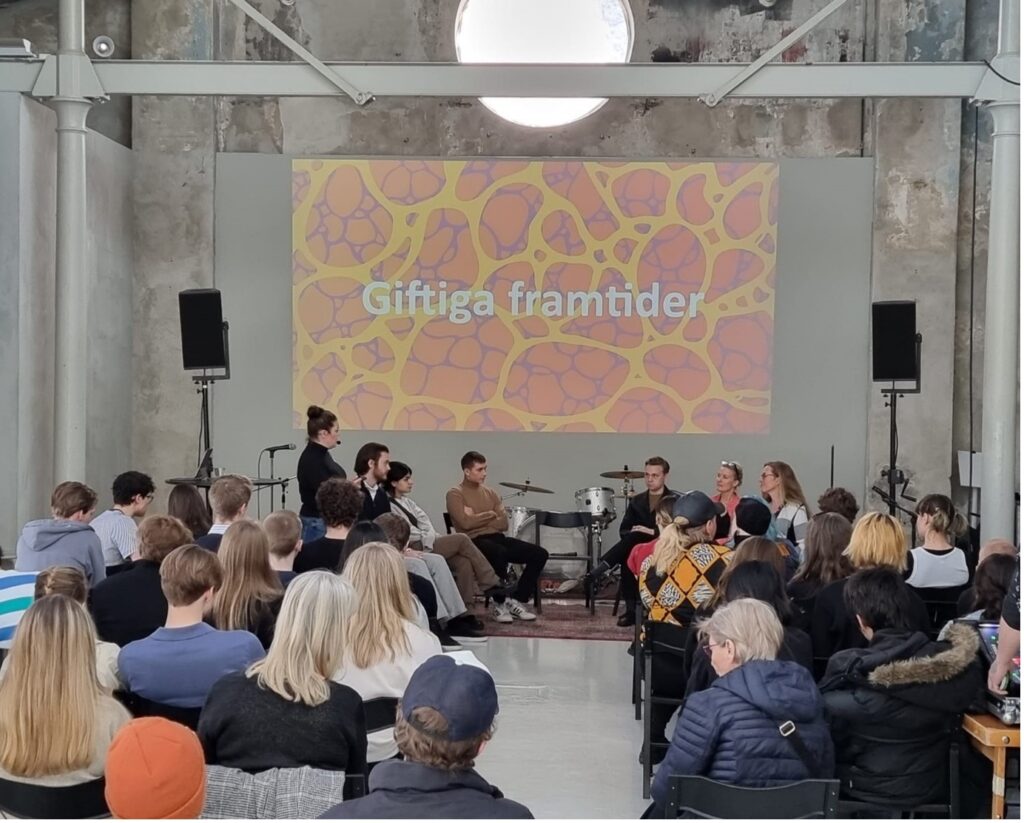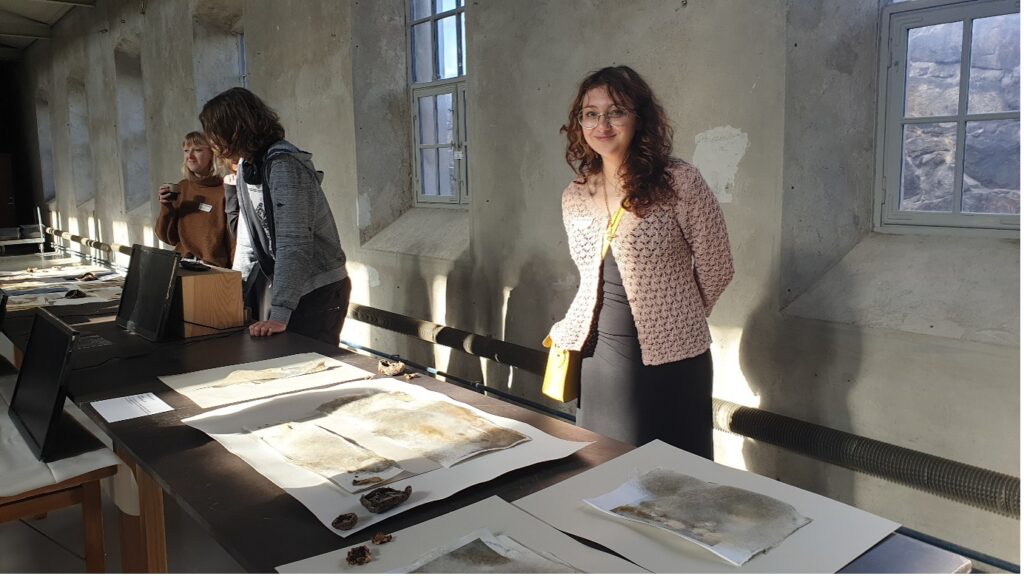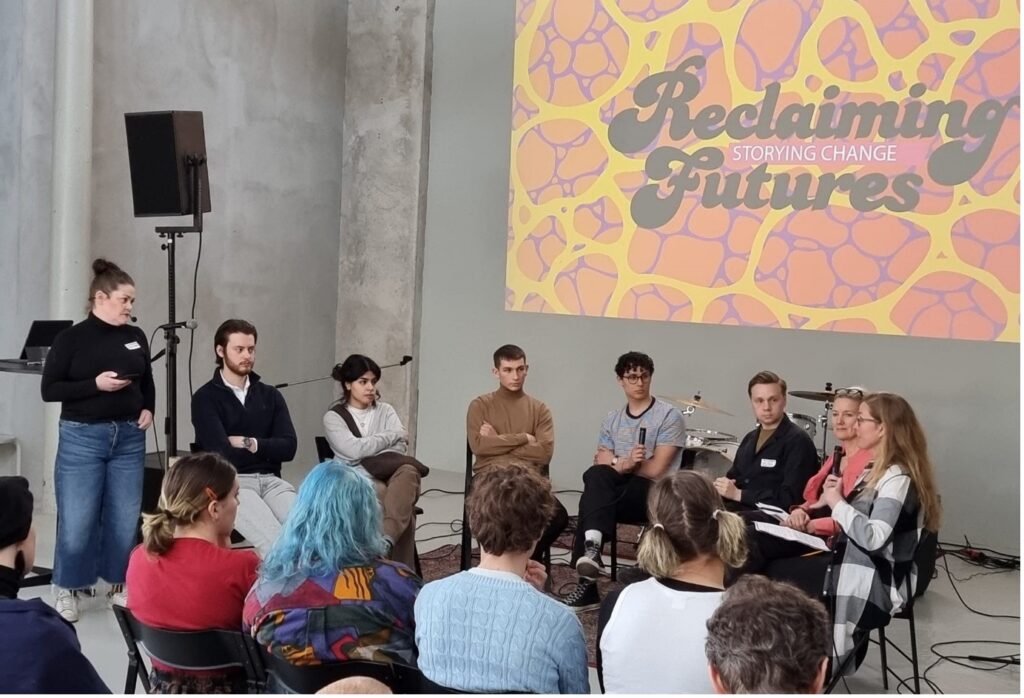Reclaiming Futures, Storying Change (FORMAS 2020-00282, UNGA FRAMTIDSSKAPARE, in Swedish, project leader Cecilia Åsberg) is a research communication project that deploys environmental humanities as a form of citizen arts to flip the classroom script and empower young creativity and criticality among early adults and youngsters 15–19 years of age.



The project team consists of scholars and experts of eco-arts, curatorialship, feminist posthumanities, artistic research, science journalism, soil art, archive play, media, philosophy, and film-making. Together the project participants work through environmental humanities problems (feelings of disempowerment and alienation from the environment, or that only society’s experts can deal with climate change) with young adults to communicate skills for coping, existentially, with climate futures.
This is also a highly collaborative project with film-maker Karin Wegsjö, science journalist Lotten Wiklund (Kajman Media), art hall Färgfabriken in Stockholm, and Daniel Urey and Karin Englund, including the Swedish Lyssna! Project, Statens Historiska Muséer, teacher Magnus Nordin and Bromma Gymnasium, artistic researcher Janna Holmstedt, Art Lab Gnesta, and The Posthumanities Hub.



In our desire to find new ways to communicate research and empower insightful action around environmental and social sustainability together with young adults, we have:
- Gathered youth and researchers for workshops, lectures and seminars to discuss the Anthropocene and climate change. Through conceptual workshops in upper secondary school, and as part of the school curriculum on media and social science/philosophy, in 2019 and in 2021 at Bromma Gymnasium the young adults reflected on research concepts and imagery from environmental humanities.
- Guided by journalists, researchers, teachers, curators and a professional film-maker, the pupils worked in small groups, as did a small team of self-organized young art activists from the rural area of Gnesta, connected and supported by the artists and curators of Art Lab Gnesta. They developed synopses and ideas for short-films that they during the course of the term developed and produced independently, with support from artists and film-makers of the project. At Färgfabriken the Youth Council met and prepared for curating a short-film festival. Also supported by the project collaborators, additional workshops on how to access free Swedish media material from the museum archives were held. Film-maker and artist supported with film-making.
- In spring 2022, the project held a large Youth Science and Film Festival at Färgfabriken, connecting the diverse groups of Swedish youth and adult participants. The Färgfabriken Youth Council had curated the event and the festival on location as a large eco- and climate art gathering, and the short films made by school groups or young art activists was screened and discussed by expert commentators, art professors, and humanities researchers in panels.
- Lessons and learnings from the project got presented in a communicative research panel in 2023 (including representative from Vetenskap & Allmänhet), on insights and experiences of working across the border zones of academia, journalism, art, school and museum. Knowledges and continuous discussions on citizen humanities, environmental arts and sciences are continuously made available through popular and scientific articles.1 The project communicates also results via its web-based platform where available tools and methods can be found, supporting teachers and pedagogues working with youth in the borderlands between natural science and existential questions posed within arts and humanities for how to meet up with the societal challenges of climate and ecological change.
See, also, article in Curie (in Swedish).